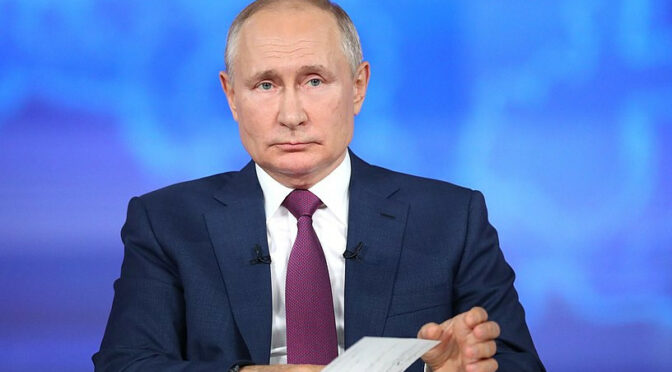Article published in The Daily Telegraph, 19 November 2022. © Richard Kemp
With Kyiv crippling Russian supply lines and driving back their forces in the east and south, and with Moscow’s missile blitz against Ukrainian cities, both sides are bracing for a tough winter. Right now, the initiative is still with Ukraine, but as Russia redeploys its forces and continues mobilising, the outcome remains in the balance.
This is no time for equivocation. Yet that is what we are seeing, with reaction in the West switching bafflingly between defeatism and triumphalism.
The defeatists are at it again, with rumours that the Americans are engaged in talks with Russia and getting ready to pressure Ukraine into making concessions. There is no doubt that Joe Biden could force an accommodation on President Zelensky, whose pleas for more assistance are a daily reminder of how dependent his country is on Western support. But it would be a terrible mistake.
Putin will not agree to any armistice along pre-February lines after nine months of piling tens of thousands of dead and maimed Russians on top of the self-inflicted economic wreckage his country has suffered. His minimum demand would be for the territory he has already annexed, along with some form of guaranteed Russian dominion over Ukraine. While he or any of his likely successors remain in power, this will not change, whatever incentives Biden might offer.
The triumphalists, meanwhile, seem to think the Putin threat is gone. They can be glimpsed in the arguments over defence spending in the UK, with Jeremy Hunt postponing a decision on increasing the budget to 3 per cent of GDP at least until the spring. This is peace-time thinking – it seems as if Whitehall thinks the war in Ukraine will be over before long and we can return to business as usual.
As Ukraine burns – and Putin’s flames threaten to engulf us – the British Army continues to slash its tanks and infantry, the RAF struggles to train enough pilots to fly fewer planes, and the 2021 Integrated Review that brought us here is being laboriously reassessed. Putin’s war has confirmed the fears of those who recognised the review’s flaws from the beginning. Boris Johnson summed up MoD thinking after it was published: ‘We have to recognise that the old concepts of fighting big tank battles on the European landmass are over.’ Three months later, we saw scenes of large-scale armoured combat in Ukraine.
The review focused on scrapping conventional military hardware, especially on the ground, in favour of untested hi-tech space, cyberspace and AI systems, and allowed dangerous capability gaps to grow. It’s obvious we need to forge ahead in technology, but, for the time being, much of it should be seen as a multiplier of conventional capability, rather than its replacement.
Unmanned aircraft as well as sophisticated intelligence, surveillance, cyber, space and communications technology supplied by Nato have been battle winners for Ukraine. But only to enable infantry, machine guns, armour, artillery, missiles and air-defence systems to inflict blistering damage on Russian forces. Without the hard combat power, none of the impressive tech would have kept Russian troops off the streets of Kyiv or even Lviv.
Retaining adequate fighting manpower and conventional combat systems while also bringing in new technology is eye-wateringly expensive, but it is the only realistic way to defend our national interests. If we don’t overturn the flawed analysis of the Integrated Review and boost defence spending, we will have learnt nothing from the horrors of Ukraine.
Image: Wikimedia Commons

